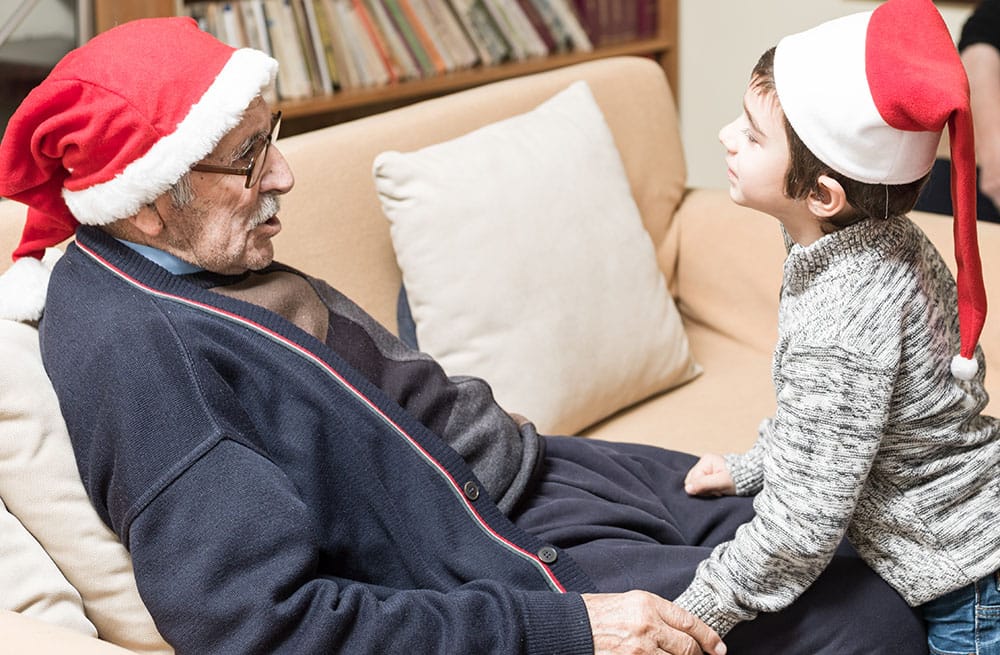Approaching Tough Conversations with the Terminally Ill

When a loved one receives a terminal diagnosis, it’s normal for family members to feel overcome by a whirlwind of emotions. These emotions can make it hard to think practically. They can also make the next interaction with that loved one can seem like a daunting task. What do you say? How do you act?
It’s important to approach these interactions thoughtfully with techniques that foster productive conversations in the best interests of the terminally ill. It may be hard to start discussing uncomfortable topics surrounding the hospice process or the end-of-life journey, but it’s important to ensure that loved ones feel supported and heard every step of the way.

The first step is acceptance.
Val Criswell, Support Services Director at Crossroads Hospice & Palliative Care in Kansas City, has found that families need to first accept their loved ones’ diagnosis and be honest with themselves and their loved one every step of the way. Telling them that their next step is hospice treatment may not be easy, but this is just one of the topics of conversation that helps everyone involved in the long run.
“One of the hardest things to help families overcome is the thought that they don’t want the patient to know they’re on hospice,” says Val. “They’re missing out on some really beautiful opportunities to come together as a family and to make this a positive experience.”
By being honest with a patient or loved one, the end-of-life journey becomes an experience to cherish. Though speaking about death can feel morbid, it can open the door for healing. Mark Pederson, a Social Work Team Coordinator for Crossroads in Kansas City, also states that the fear of defeat can often get in the way.
“A lot of times, family will say that they don’t want to give up,” he says. “I still run into families that think, if you talk about funeral plans, that’s going to make their loved one die.”
Though these concerns come from a place of love, it’s all about creating a positive environment and beginning the journey together on the right foot. Social workers and other aids are there to help families understand that hospice is not giving up — it’s making the next decisions for a loved one.

Consistent communication is key for planning ahead.
“I think it’s just a time to really stress communication,” says Mark.
As social workers, both Val and Mark understand the importance of planning ahead and preparing for a patient’s end-of-life journey every step of the way. Beginning those plans may feel daunting, and can also cause painful conversations — but without them, many loved ones are left to make arrangements in times of crisis.
“Take the time to take a step back and start pre-planning if you can,” suggests Val.
Often, these plans and discussions are focused on funeral arrangements, financial needs, or goals of care for a loved one. Having a plan ahead of time can save families from feeling stressed or unprepared for the future. When it comes to caregiving, everyone can play an integral part and work together.
It’s common to feel that one person is carrying a larger load than another, but everyone's efforts count. Whether it’s managing funeral arrangements or being a primary caregiver, each task helps the patient have a positive journey during their time on hospice.

Center the conversation around the patient.
When making plans and starting important conversations about the end-of-life journey for a loved one, the most crucial focus should be on what the patient wants.
“I think the main thing is: what are the goals of care? What is it that your loved one truly wants at the end of life,” says Val. “Oftentimes what the patient and the family wants are two different things.”
It’s common for families to assume wishes and make decisions without consulting their loved ones because those conversations are uncomfortable. Approaching these conversations with love and confidence can help everyone feel supported — especially the patient. By putting the patient first, families are able to help them find closure, fulfill final wishes, and reassure them that they are supported.
By starting these tough conversations with the terminally ill, families are able to take control of their experience with a loved one on hospice.
“It can be a much more positive experience if they all communicate and everyone gets on the same page,” says Val.
With the right planning, a patient-centered mindset, and the proper outlook, families can create a wonderful end-of-life journey for their loved one. To learn more about Crossroads Hospice & Palliative Care’s mission to provide patient-centered care, call us at 1-888-564-3405.
If you found this information helpful, please share it with your network and community.
Copyright © 2019 Crossroads Hospice & Palliative Care. All rights reserved.



